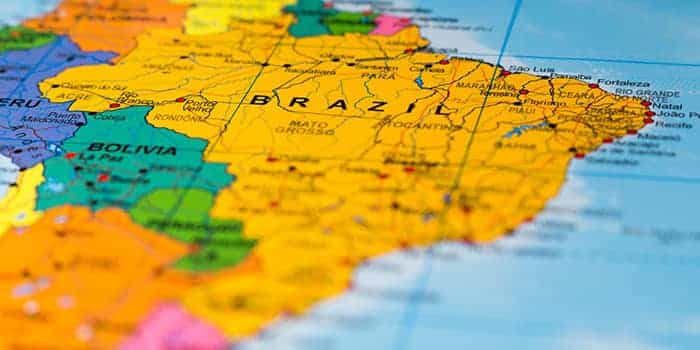The lawsuit originated from a federal government action, led by the Attorney General’s Office, arguing that Loterj’s attempt to license betting firms nationwide violated Brazil’s lottery regulations

Brazil’s Supreme Federal Court (STF) has decided that the Loteria do Estado do Rio de Janeiro (Loterj) cannot extend its operations beyond state lines.
Majority of STF Justices Rule against Loterj’s Nationwide Operations
Most justices agreed on this ruling during a virtual plenary session. This choice backs up an earlier order from Minister André Mendonça. It stresses that state-run lotteries must stick to their own areas and follow federal rules.
The lawsuit has its roots in a legal action brought by the federal government, via the Attorney General’s Office (AGU). They claimed that Loterj’s efforts to license betting firms for countrywide operations went against Brazil’s legal structure for lotteries. The AGU insisted that giving Loterj the power to approve operators beyond Rio de Janeiro would affect fair competition, weaken federal control, and clash with national gambling rules.
In October 2024, the AGU took legal action against Loterj questioning its expansion efforts. As a result, Minister Mendonça put out an injunction on January 2, 2025 stopping Loterj’s nationwide growth and putting a hold on changes to its licensing rules.
The minister’s decision focused on a part of the 2023 accreditation notice. This part let betting companies say that all online bets would count as placed in Rio de Janeiro, no matter where bettors were. Mendonça said this created a “made-up territorial extension” that stepped on federal power and other states’ rights.
Geolocation Now Mandatory for Loterj Bets as Supreme Court Enforces Territorial Rules
The STF’s ruling handed down through its virtual plenary session, confirmed Mendonça’s initial decision. Most justices agreed that states have the power to control lottery services only within their own areas, as set by federal law. In his view, Mendonça stressed that although states can explore lottery activities, they must do this within their geographic boundaries and follow federal rules.
Justices Gilmar Mendes, Alexandre de Moraes, Flávio Dino, Dias Toffoli, Cármen Lúcia, and Cristiano Zanin backed Mendonça’s stance. Justice Luiz Fux agreed with the main decision but suggested changing its effect to keep contracts signed before the court order valid.
After the STF’s ruling, Loterj cannot allow betting companies to work outside Rio de Janeiro anymore. The decision also says they need to use electronic location tracking to make sure all bets on Loterj-approved platforms come from inside the state. This rule aims to stop operators from getting around area limits and makes sure they follow federal rules.
The case sheds light on current attempts to set clear jurisdiction limits in Brazil’s growing gambling scene. The STF’s decision matches regulations, which state that state lotteries can market and advertise their services to people present within their own areas.
The ruling is likely to have a big effect on gambling in Brazil stopping state lotteries from working outside their own areas. Making sure everyone follows the rules will depend a lot on using location-tracking technology, and betting companies will need to change how they do business to fit what the STF says.

